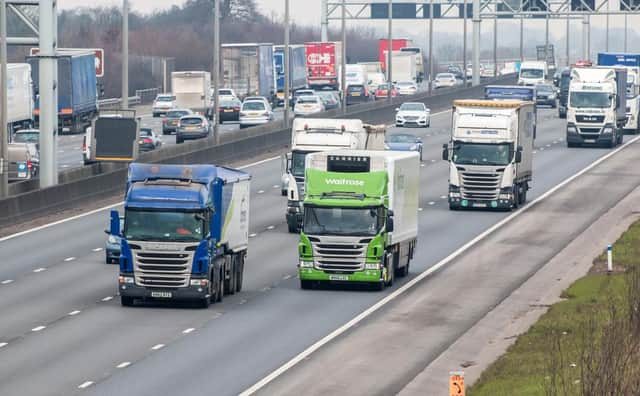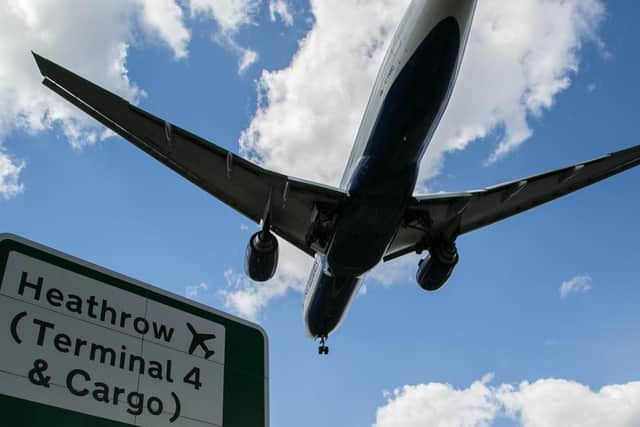New diesel vans and lorries to be banned by 2040 and aviation to become net carbon neutral under Government transport “greenprint”


The sale of new petrol and diesel vans and lorries will banned from 2040 as part of an ambitious plan to decarbonise transport in the UK by the mid-century.
The Government’s Transport Decarbonisation Plan will stop the sale of all polluting HGVs by 2040, with plans to stop the sale of combustion-engined vehicles weighing between 3.5 tonnes and 26 tonnes five years earlier.
Advertisement
Hide AdAdvertisement
Hide AdIt also aims to make the UK’s aviation industry net zero emissions by 2050 through the use of more efficient planes, synthetic fuels and even electric or hydrogen powered aircraft as well as carbon offsetting.


According to the Government, transport is the largest contributor to the UK’s greenhouse gas emissions, with road transport responsible for a quarter of all emissions. As part of its efforts to cut these emissions to net zero, the Government wants to radically change the face of road transport, including a ban on the sale of new petrol and diesel cars by 2030 and the newly announced phasing out of other ICE vehicles.
Such a move would require hauliers, logistics companies and public transport operators to adopt zero-emission vehicles. Trials are already taking place of hydrogen powered lorries but they are not yet commercially available.
The plan also includes a commitment to switch the Government’s entire fleet of cars and vans to electrified models by 2027 and legislation to force manufacturers to make all private EV chargers “smart” chargers.
Advertisement
Hide AdAdvertisement
Hide AdTransport Secretary Grant Shapps said the plan was a “world-leading” and “credible” pathway for the transport industry to reach net zero by 2050 but the scheme has been criticised for relying on vehicles and technology which don’t yet exist.
Mr Shapps said: “It’s not about stopping people doing things: it’s about doing the same things differently. We will still fly on holiday, but in more efficient aircraft, using sustainable fuel. We will still drive, but increasingly in zero emission cars.
“The transport decarbonisation plan is just the start – we will need continued efforts and collaboration to deliver its ambitious commitments, which will ultimately create sustainable economic growth through healthier communities as we build back greener.”
Rod McKenzie, managing director of the Road Haulage Association, said that he supported the decarbonisation goal but the plan was “blue-sky aspirations ahead of...reality”.
Advertisement
Hide AdAdvertisement
Hide AdHe said: These alternative HGVs don't yet exist. We don't know when they will and it's not clear what any transition will look like.
"For many haulage companies there are fears around cost of new vehicles and a collapse in resale value of existing lorries."
The aims to make domestic aviation net carbon neutral have also been criticised. Green Party MP Caroline Lucas told the BBC the government was “hoodwinking” the public and the announcement was a “flight of fantasy" which relied on technology that was still in development.
The plan also includes proposals to force car makers to improve the efficiency of new road vehicles and support to encourage “active travel” such as walking and cycling.
Comment Guidelines
National World encourages reader discussion on our stories. User feedback, insights and back-and-forth exchanges add a rich layer of context to reporting. Please review our Community Guidelines before commenting.